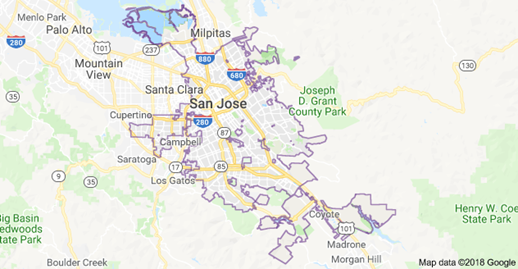Bonuses of Up to $8,000 to Teach in Struggling New York Schools – By Eliza Shapiro, The New York Times
At 180 public schools in New York City, many in the Bronx, hiring and keeping teachers is a constant struggle. These are schools that are in some of the poorest neighborhoods and are often a long trek from the nearest subway stop.
On Thursday, the city reached an agreement with the powerful teachers’ union on an initiative that Mayor Bill de Blasio called a “very powerful pointed tool” to address this problem.
Under the agreement, the de Blasio administration will give bonuses of $5,000 to $8,000 to teachers who work in schools that many teachers avoid.
The United Federation of Teachers signed a $2.1 billion contract with the city seeming to acknowledge that union rules about how teachers can be paid, hired and fired have stymied progress in the city’s struggling schools.
The agreement, settled as part of a contract renewal with the union, signals a new phase in both the city and the union’s strategy for poorly performing schools. Mr. de Blasio’s current program, known as Renewal, has produced mixed results at best since 2014.

"Don't panic": Texas Education Agency sends instructions on police interaction curriculum – By Josh McCullough, The Texas Tribune
“So you’re getting pulled over...”
The Texas Education Agency has sent school districts the educational material to teach high schoolers how to properly interact with law enforcement during traffic stops. The material — which includes a 16-minute video with good and bad habits dramatically acted out amid fast-paced music and overlaid clips of talking heads — is a key part of a new Texas law passed called the Community Safety Education Act.
“The goal of the act was to define the behavior expectations of citizens and law enforcement during traffic interactions,” says state Sen. Royce West, a Dallas Democrat who authored the legislation, at the beginning of the video. “We know that in some communities there’s an issue concerning trust between law enforcement and the community.”
Senate Bill 30 breezed through the Texas Legislature last year as tension continued to grow over deadly police encounters, many of which stem from traffic stops. Notably, it passed after the death of Sandra Bland — the video footage of a quick escalation from simple traffic stop to combative arrest and her subsequent jail death prompted lawmakers to take action.
The law requires that teens, new drivers and police officers be specifically taught on police and citizen interactions. According to the TEA’s instructor guide, the school curriculum includes four sections: the duties of officers, citizen rights, proper behavior during an interaction and filing a complaint or compliment.

‘Doors open because of this’: How one Newark high school is closing the college degree gap – By Patrick Wall, Chalkbeat
After the final bell rang at Newark’s East Side High School on a recent afternoon and students surged toward the exits, Hannah Olaniyi hustled to her next class.
By 3 p.m., she was copying down the distinctions between prokaryotic and eukaryotic cells among 13 other seniors who had elected to take a college-level biology course after their normal school day.
Olaniyi is not alone in her quest for a college degree. On average, 51 percent of Newark Public School students enroll in college right after high school, a rate that has grown over time, according to a new report. Yet only 23 percent of Newark high school graduates earn a degree within six years of leaving high school, the report found, leaving them ill-equipped for an economy where decent-paying jobs are increasingly reserved for college graduates.
The early-college program that Olaniyi is part of at East Side, like those at a handful of other Newark schools, is an effort to close the degree gap by allowing students to earn college credits even before they have high-school diplomas. Through a partnership with Essex County College, a Newark-based community college, East Side students who qualify by passing a required exam can earn up to 64 college credits and an associate’s degree by graduation — a benefit offered by only 7 percent of programs like this in the U.S., according to federal data. And, unlike many programs, the cost of transportation, books, and tuition is free to students.

Turn schools into teacher housing? Unique idea sparks backlash in Bay Area community – By Marisa Kendall, San Jose Mercury News
A local school district’s unique idea to turn schools into teacher housing — an attempt to tackle the region’s dire housing shortage and retain fleeing instructors — is colliding with a massive backlash from neighborhood residents.
The San Jose Unified School District has identified nine district-owned properties where it is considering building several hundred new units of affordable housing for teachers and other school employees.
The district’s proposal calls for schools — including beloved Leland High School and Bret Harte Middle School in wealthy Almaden Valley — to be uprooted and relocated to make way for housing, a prospect that has some community members up in arms.
“It is ridiculous,” former Leland football coach Mike Carrozzo said of the proposal. “You’re going to build low-income housing in one of the more prosperous areas in the Bay Area, which also happens to be the furthest corner of the district for district teachers. It’s crazy.”
San Jose Unified says it’s fighting to find and retain workers as rising housing costs outpace income. Teachers are commuting up to four hours a day to and from the city’s schools, potential hires are refusing jobs here and talented staff are quitting in droves, forcing the school district to replace one out of every seven teachers each year.












